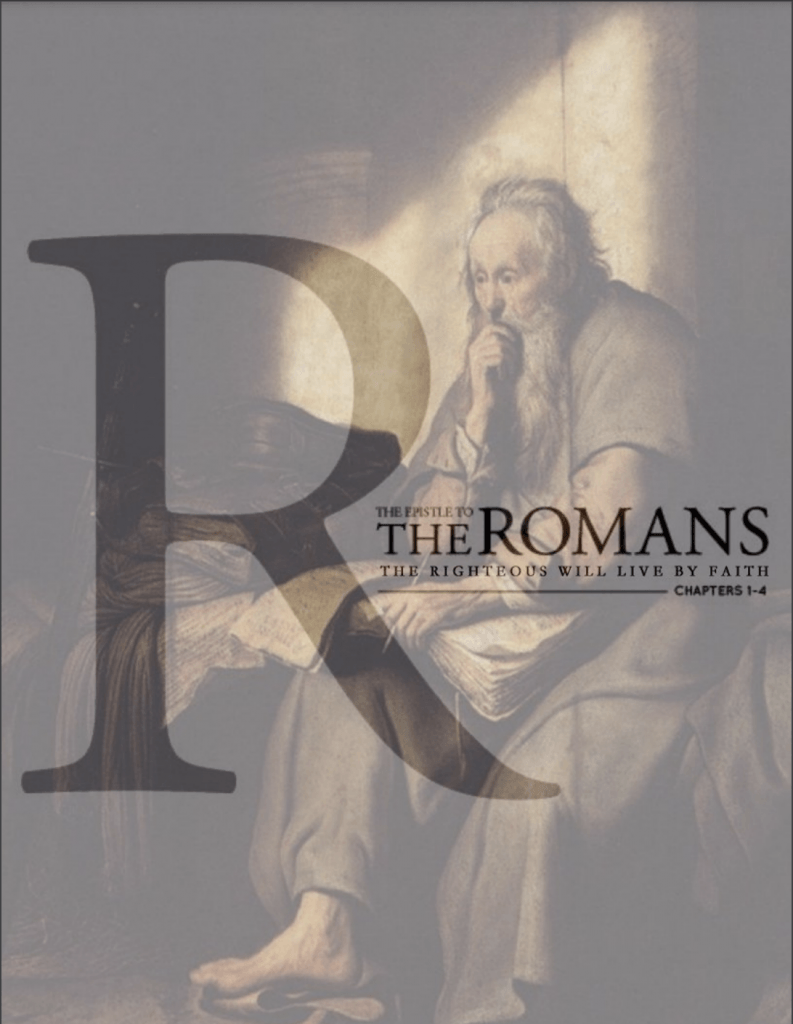
[Romans Study 6-1]
Not Just Hearing But Doing [Romans 2:1-16]
1 You, therefore, have no excuse, you who pass judgment on someone else, for at whatever point you judge the other, you are condemning yourself, because you who pass judgment do the same things. 2 Now we know that God’s judgment against those who do such things is based on truth. 3 So when you, a mere man, pass judgment on them and yet do the same things, do you think you will escape God’s judgment? 4 Or do you show contempt for the riches of his kindness, tolerance and patience, not realizing that God’s kindness leads you toward repentance?
In the first chapter Paul mainly addressed the sin of Gentiles, who are non-believers. In the second chapter, he directs his attention—especially, yet not exclusively—to the Jews, or those with the knowledge of God A parallel audience in today’s era would be Christians.
In short, Paul’s message is being directed towards those who claim to know a bit of God’s Word and who believe that they are on the correct path of understanding. This message was never meant to be given to the Jews of Paul’s time only, but the Christians of today are also stung with his fiery words.
Who Are the Jews?
Why did Paul specifically point out the sin of the Jews (‘believers’), apart from the sin of Gentiles (‘non- believers’)?
There are many good reasons why he did this. In order to have a clearer picture, we must first understand how the Jews thought about themselves in relation to the rest of the world. The Jews always considered themselves to be in a specially privileged position with God. “God,” they said, “loves Israel alone apart from all the nations of the earth.” “Abraham sits beside the gates of hell and does not allow any Israelite, no matter how wicked, to go through.” When Justin Martyr was arguing with the Jews about their spiritual position in the Dialogue with Trypho, the Jews said, “They who are the seed of Abraham according to the flesh shall in any case, even if they be sinners and unbelieving and disobedient towards God, share in the eternal Kingdom.”
Condemnation Without Love
Paul begins this discourse with the sin of condemnation. He describes the Jew who believes that everyone else is destined for judgment except himself and who freely passes judgment on others without realizing his own sin. Judging others recklessly, condemning others—this is the sin that Paul speaks about.
Are we also condemning our brothers? Condemnation is not love, but hatred. Are we judging brothers with hatred?
Here, Paul is following the teachings of Jesus. Jesus warned of the sin of condemnation on the Sermon on the Mount: “Do not judge, or you too will be judged. For in the same way you judge others, you will be judged, and with the measure you use, it will be measured to you. Why do you look at the speck of sawdust in your brother’s eye and pay no attention to the plank in your own eye? How can you say to your brother, ‘Let me take the speck out of your eye,’ when all the time there is a plank in your own eye? You hypocrite, first take the plank out of your own eye, and then you will see clearly to remove the speck from your brother’s eye.” (Matthew 7:1-5)
When believers see the speck of sawdust in another’s eye, we must be reminded that we have a plank in our own eye. Therefore, we should first take the plank out of our own eye before considering the sin of others.
Christians should never judge others with a heart of hatred. Paul is saying, “You who judge others, are you perfect?”Apostle John, who had a deep understanding of God’s love, proclaimed that “anyone who hates his brother is a murderer” (1 John 3:15). Hatred in our hearts is sin; banishing love in our hearts is sin. “You fail to see the hatred in your heart while you condemn the shortcomings of your brother,” says Paul. Condemnation with a motive of hatred will not change anyone but only breaks relationships. Only with love, given because of love, will people change.
God Is Fair
No one can escape from God’s judgment for His judgment is based on truth. God is fair to everyone and Paul makes this point clearly in this Epistle: God does not show favoritism (2:11); Is God unjust? Not at all! (9:14) What is the love of God like? God’s love is like the sun that He shines on both the evil and the good. (Matthew 5:45) Whether believers or non-believers, each of us is the same distance from God.
Republished with permission from Dr. Christy Tran, the author of “The Epistle to the Romans: Paul’s Love Letter from God.”